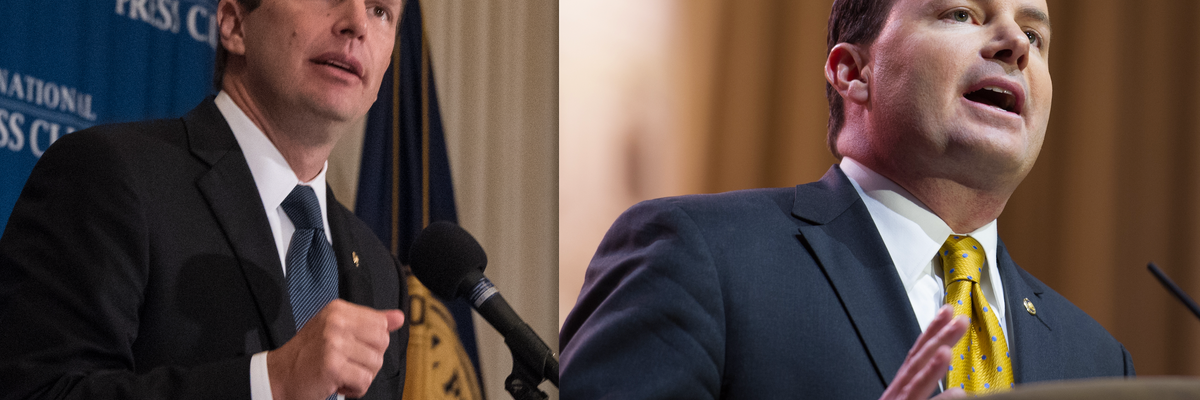More than 50 organizations released a statement on Monday urging senators to support bipartisan legislation which would require the State Department to send Congress a report on Saudi Arabia’s human rights practices, and open the door for Congress to eventually take a vote to either terminate or restrict security assistance to Riyadh.
The legislation was first introduced by Sens. Chris Murphy (D-Conn.) and Mike Lee (R-Utah) in mid-March. “The administration has not acted on its commitment to re-evaluate the relationship with Saudi Arabia, so it is incumbent on Congress to take action,” said Murphy in a statement. “This resolution sets in motion a process that will allow Congress to debate the deteriorating human rights record of Saudi Arabia and how that should impact U.S. policy going forward.” The mechanism which permits Congress to claim this oversight role — section 502B of the Foreign Assistance Act — has not been employed since 1976.
The statement’s signatories — which include the Center for Civilians in Conflict, the Project on Middle East Democracy, Human Rights Watch, and the Quincy Institute, which publishes Responsible Statecraft — emphasized the administration’s failure to follow through on pledges to rethink relations with Saudi Arabia in light of Riyadh’s war on Yemen, the murder of journalist Jamaal Khashoggi, and widespread human rights abuses within the country.
The State Department’s recently released 2022 Country Reports on Human Rights Practices itself acknowledges significant human rights abuses, including “credible reports of: unlawful or arbitrary killings, including extrajudicial killings; enforced disappearances; torture and cruel, inhuman, or degrading treatment or punishment by government agents; harsh and life-threatening prison conditions,” and much more.
“The Biden administration has repeatedly promised a re-evaluation of the U.S.-Saudi relationship: during the presidential campaign, once in office, and most recently in October 2022 following the decision of OPEC+, led by Saudi Arabia and Russia, to decrease its oil production, thereby helping finance Russia’s invasion of Ukraine,” reads the statement. “That re-evaluation has not taken place, forcing Congress to take up a needed debate.”
The Lee-Murphy bill also comes amid an effort among lawmakers to reclaim some of its warmaking powers. In the last month, there have been votes on the Hill to withdraw U.S. troops from Syria and Somalia and to repeal the 1991 and 2002 Authorizations to Use Military Force.
“It has been 47 years since Congress used Section 502B, one of its most powerful tools for conducting human rights oversight of US arms sales and security assistance,” said Annie Shiel, US Advocacy Director at CIVIC in a statement. “This welcome resolution should mark the beginning of renewed attention on Capitol Hill to how US-made bombs and bullets fuel violence, civilian harm, and human rights abuses around the world.”
Passage of such a bill could also create space for conversations about holding other countries accountable. As the Quincy Institute’s Trita Parsi and Annelle Sheline wrote in Foreign Policy last week, “By invoking 502B, a powerful but untested provision of the Foreign Assistance Act, Murphy and Lee could initiate a shift not only in the U.S. security relationship with Saudi Arabia but in its relationships with other systematic human rights abusers that currently receive U.S. security assistance.”















